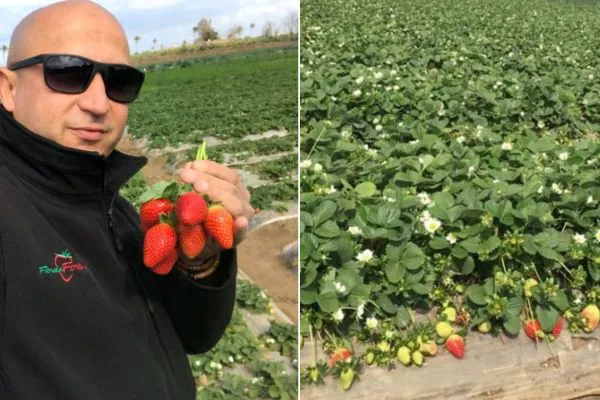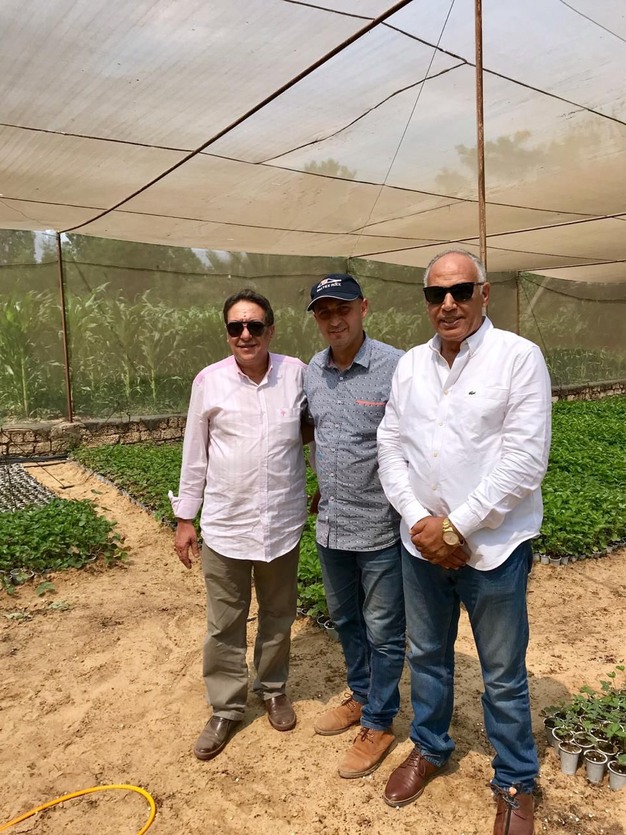Egyptian strawberry growers are complaining of unfavorable weather conditions this year, resulting in higher production costs, lower volumes, and a switch in the strawberry varieties adopted. Emad Mahdy, owner of Al Fayruz Nurseries and a consultant specializing in strawberry production, comments on this situation.
Emad explains, "Under normal circumstances, the Egyptian climate is very favorable for strawberry production, but due to the climate change that the country is experiencing, big disturbances and sudden temperature changes are impacting this crop. We are starting to see all the seasons of the year in one day."

As a result, it has become necessary to intensify agricultural operations such as fertilization and disease treatment, according to Emad: "We see a spread of diseases such as thrips, tetranychus urticae, powdery mildew, rotten fruits, rotten roots, and nematodes... in the past, these diseases used to occur at separate times of the year and were easy to treat, now they are much more present."
This has led to at least a doubling of the cost of production, Emad adds, which in turn has caused a decline in strawberry volumes in Egypt this year. "The cost of producing a feddan was about 150,000 EGP last year, with a productivity of 20-30 tons per feddan. This year, the cost has increased to 210,000 EGP for a yield of 10-20 tons." (1 USD ≈ 30 EGP, 1 ha = 2.38 Feddans)
 As a result, prices for Egyptian strawberries have risen considerably, "reaching a level of $0.5 per kilo. Prices will continue to rise, as they barely cover the cost of production, and production costs are expected to reach the 250,000-300,000 EGP per feddan range this very year," according to Emad.
As a result, prices for Egyptian strawberries have risen considerably, "reaching a level of $0.5 per kilo. Prices will continue to rise, as they barely cover the cost of production, and production costs are expected to reach the 250,000-300,000 EGP per feddan range this very year," according to Emad.
This situation has also led to changes in the varieties adopted by producers, who reported that the Florida varieties have been particularly affected this year. Emad defends the quality of the plants: "In the fresh strawberry sector, Florida plants have been particularly affected because they are more vulnerable to soil-borne diseases. Because of climate change, fungal diseases like neopestalotiopsis have spread widely not only in Egypt but in several countries, which require completely different fertilization and treatment protocols. This is not a deterioration in the plant's quality but a deterioration in production conditions."
Emad added: "There is a tendency to adopt other varieties, such as those from California, Spain, and Italy, which are more resistant to diseases and have proven their worth in Egypt in terms of yield and endurance, despite a recorded delay in production."

"That said, Florida varieties still have their place, as they make up for 95% of strawberry production thanks to their early production and bigger yield. Let's not forget that these varieties made Egypt the first exporter of frozen strawberries and the third exporter of fresh strawberries in the world for the last 3 years. The export programs for fresh strawberries are still ongoing, as all the problems we have described have affected other countries as well," concludes Emad.
For more information:
Emad Mahdy
Al Fayruz Nurseries
Tel.: +201014040722
Email: [email protected]
